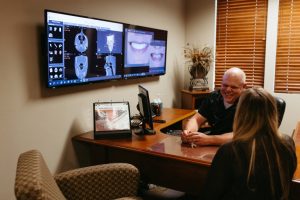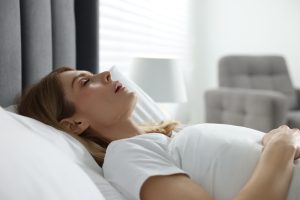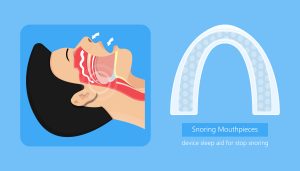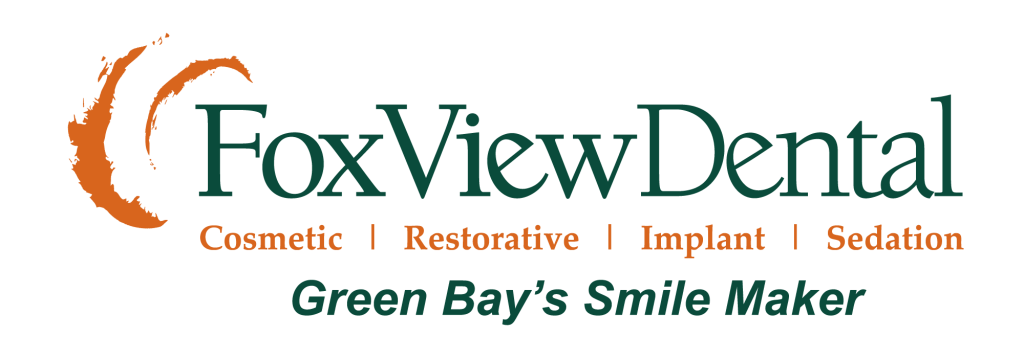Simple Adjustments That Can Transform Your Sleep Quality
Waking up exhausted despite a full night in bed? Constant fatigue dragging you through each day? While CPAP machinesremain a popular treatment for sleep apnea, many patients in De Pere and Green Bay find the masks uncomfortable and the equipment cumbersome. The encouraging news? For some individuals with mild to moderate sleep apnea, strategic lifestyle modifications can significantly reduce symptoms and improve sleep quality.
At Fox View Dental, Dr. Chad Yenchesky helps patients throughout De Pere, Green Bay, Allouez, Howard, and Ashwaubenon explore comprehensive approaches to managing sleep apnea. To learn more about how lifestyle changes can complement your sleep apnea treatment, contact our dental office near youby calling (920) 336-4201today.
Dr. Yenchesky’s Approach to Comprehensive Sleep Apnea Care

While oral appliance therapyremains one of the most effective treatments for mild to moderate obstructive sleep apnea, Dr. Chad emphasizes the importance of lifestyle modifications as either complementary strategies or standalone interventions for appropriate candidates. His down-to-earth demeanor and relentless pursuit of perfection mean he takes time to educate patients about all available options, creating personalized treatment plans that fit individual needs and lifestyles.
Sleep Apnea and Why Treatment Matters

The Hidden Dangers of Untreated Sleep Apnea
Leaving sleep apnea untreated carries serious consequences that extend far beyond feeling tired. The condition significantly increases your risk of:
- Cardiovascular diseases, including heart attack and heart failure
- High blood pressure and stroke
- Type 2 diabetes and metabolic syndrome
- Impaired cognitive function and memory problems
- Depression and mood disorders
- Workplace accidents and motor vehicle crashes
However, effective treatment—whether through CPAP therapy, oral appliances from Dr. Yenchesky, or lifestyle modifications—can dramatically improve your sleep quality, boost energy levels, and enhance your overall well-being.
Powerful Lifestyle Changes That Reduce Sleep Apnea Symptoms
Weight Management: The Foundation of Sleep Apnea Improvement
One of the most impactful lifestyle changes for individuals with sleep apnea is achieving and maintaining a healthy weight. Obesity represents a significant risk factor for sleep apnea because excess fat around the neck can physically obstruct the airway during sleep. Even modest weight loss—as little as 10-15 pounds—can reduce sleep apnea severity, and in some cases, eliminate it entirely.
Dr. Yenchesky often discusses realistic weight management strategies with patients, recognizing that sustainable changes work better than drastic diets. Combining healthy eating habits with regular physical activity creates the best foundation for long-term success. For patients in De Pere and Green Bay working to manage their weight, the positive effects on sleep quality can become noticeable within weeks.
Diet Modifications That Support Better Sleep
What you eat—and when you eat it—can significantly impact sleep apnea symptoms. A balanced, anti-inflammatory diet helps with weight management while decreasing inflammation that can contribute to airway obstruction.
Key dietary recommendations include:
- Reduce processed foods: High-fat, high-sugar, and heavily processed foods promote inflammation and weight gain
- Increase whole foods: Fresh vegetables, fruits, lean proteins, and whole grains support a healthy weight and reduce inflammation
- Avoid late-night eating: Large meals within three hours of bedtime can worsen sleep apnea symptoms
- Limit caffeine: Especially in the afternoon and evening, as it disrupts sleep quality
- Reduce alcohol consumption: Alcohol relaxes throat muscles, significantly worsening sleep apnea
Patients from Allouez to Ashwaubenon have reported noticeable improvements in their sleep quality after implementing these dietary changes alongside other treatments.
Regular Exercise: Strengthening Your Airways

Dr. Yenchesky—an avid outdoorsman who enjoys archery hunting and spending time in nature—encourages patients to find activities they genuinely enjoy. Whether it’s:
- Brisk walking along the Fox River Trail in De Pere
- Swimming at local recreation centers
- Yoga classes in Green Bay
- Biking through Brown County parks
- Kayaking on the Fox River
The key is consistency. Aim for at least 30 minutes of moderate activity most days of the week. However, time your exercise wisely—working out too close to bedtime can actually disrupt sleep. Try to finish vigorous exercise at least three hours before bed.
Sleep Position: A Simple Change With Big Impact

Dr. Yenchesky frequently recommends side-sleeping as a simple yet effective intervention. Strategies to encourage side-sleeping include:
- Positional devices: Special pillows or wearable devices that discourage back-sleeping
- Tennis ball trick: Sewing a tennis ball into the back of your pajama top creates discomfort when rolling onto your back
- Wedge pillows: Elevating your upper body can reduce airway collapse
- Body pillows: Hugging a body pillow naturally encourages side-sleeping
Many patients report immediate improvement in snoring and sleep quality simply by changing their sleep position.
Avoiding Alcohol and Sedatives
Alcohol and sedative medications relax the muscles in your throat, significantly exacerbating sleep apnea symptoms. Even moderate alcohol consumption within four hours of bedtime can increase the frequency and duration of apnea episodes.
Dr. Yenchesky advises patients to:
- Eliminate alcohol consumption in the evening
- Avoid sedating medications unless medically necessary
- Discuss alternative medications with physicians if current prescriptions worsen sleep apnea
- Be particularly cautious about combining alcohol with sleep medications
Reducing or eliminating these substances often leads to noticeable improvements in sleep quality and reduced instances of apnea.
Quit Smoking: Protecting Your Airways

Quitting smoking can lead to significant improvements in sleep quality and overall health. Dr. Yenchesky can provide resources and support for patients ready to quit, recognizing that tobacco cessation represents one of the most powerful lifestyle changes for improving sleep apnea.
Developing a Consistent Sleep Schedule
Your body thrives on consistency. Establishing a regular sleep schedule helps regulate your internal clock, improving both sleep quality and sleep apnea symptoms.
Dr. Yenchesky recommends:
- Going to bed at the same time every night—even on weekends
- Waking up at the same time each morning
- Creating a relaxing bedtime routine that signals to your body it’s time to sleep
- Keeping your bedroom cool, dark, and quiet
- Limiting screen time for at least an hour before bed
These sleep hygiene practices work synergistically with other lifestyle changes and treatments to maximize sleep quality.
The Remarkable Benefits of Lifestyle Changes for Sleep Apnea Patients
Patients who commit to lifestyle modifications for sleep apnea consistently report transformative results:
- Improved Sleep Quality: Lifestyle changes lead to deeper, more restorative sleep with fewer nighttime awakenings and better overall sleep architecture.
- Enhanced Daytime Alertness: Better sleep translates directly to improved daytime alertness, sharper concentration, and increased productivity at work or school.
- Reduced Health Risks: These modifications lower your risk of associated health problems, including cardiovascular diseases, high blood pressure, stroke, and diabetes.
- Sustainable Weight Loss: Healthy eating and regular exercise lead to gradual, sustainable weight reduction, particularly around the neck—a common contributor to airway obstruction.
- Decreased Treatment Dependence: Lifestyle changes may reduce your need for CPAP therapy or allow you to use a less intensive oral appliance setting.
- Enhanced Mood and Mental Health: Improved sleep leads to better emotional regulation, reduced irritability, and decreased symptoms of depression and anxiety.
- Better Quality of Life: By addressing sleep apnea through comprehensive lifestyle changes, individuals enjoy increased energy, vitality, and the ability to fully participate in activities they love.
Combining Lifestyle Changes With Professional Treatment

At Fox View Dental, Dr. Chad combines his extensive continuing education—averaging over 100 hours annually in professional development—with personalized care to create treatment plans that address each patient’s unique situation. Whether that involves custom oral appliances, lifestyle coaching, or referrals to other specialists, the goal remains the same: helping you achieve the restful, restorative sleep you deserve.
If you’re looking for a custom treatment plan that addresses your sleep apnea from multiple angles, contact our dental office in De Pere today by calling (920) 336-4201.


